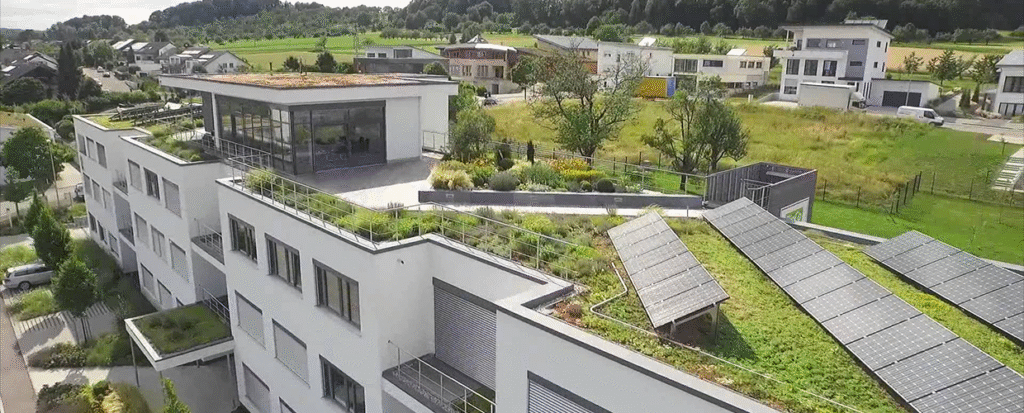The year 2024 was a transformative one for Kenya’s property market. With rising demand, technological advancements, and government-backed housing programs, real estate trends in Kenya 2024 reflected a more inclusive, efficient, and investor-friendly landscape.
Whether you’re an investor, developer, or homebuyer, understanding these trends can help you make smarter decisions.
In this guide, we’ll explore:
- The most impactful real estate trends in Kenya 2024
- How they affected buyers and sellers
- And what to expect in 2025
Let’s get started!
📈 Top 10 Real Estate Trends in Kenya (2024 Recap)
Here are the key trends that shaped the Kenyan real estate sector last year:
1. Smart Cities Development Gains Momentum
What Happened:
Cities like Tatu City , Konza Technopolis , and Ruiru Smart City saw major infrastructure progress.
Why It Matters:
- Attracts foreign investment and long-term residents
- Reduces pressure on Nairobi CBD
- Increases land value in surrounding areas
📌 Example: Tatu City expanded its residential and industrial zones by 30% in 2024.

2. Digital Property Platforms Rise in Popularity
What Happened:
Online listing sites like Zameen Africa , Property24 Kenya , and Jengo Real Estate gained traction.
Why It Matters:
- Increased transparency and access
- Virtual tours and mobile-based transactions became common
- Reduced fraud through verified listings
📌 WhatsApp Business and USSD-based property search also grew significantly.

3. Affordable Housing Programs Deliver Results
What Happened:
Under the Big Four Agenda , over 10,000 new homes were delivered across Nairobi, Kiambu, and Machakos.
Why It Matters:
- Makes homeownership accessible to middle-income earners
- Encourages mortgage-linked financing
- Stima Housing, Home Afrika, and Jamii Bora led the way
📌 More developers are partnering with SACCOs and banks for flexible payment plans.
4. Green Building Initiatives Go Mainstream
What Happened:
More developers adopted sustainable materials and energy-efficient designs.
Why It Matters:
- Lowers utility costs for residents
- Meets global ESG standards
- Attracts eco-conscious investors and expats
📌 Kingsight Heights and Britam Tower incorporated green features like solar panels and water recycling.

5. Land Banking in Emerging Zones Surpasses Expectations
What Happened:
Investors focused on areas near transport hubs—especially Naivasha , Athi River , and Konza-linked plots .
Why It Matters:
- Land values rose by up to 20% annually
- Strategic infrastructure projects boost future appreciation
- Lower entry point compared to built properties
📌 Many investors now prefer fractional ownership via crowdfunding platforms.
6. REITs Continue to Gain Interest
What Happened:
Kenya’s first REIT, launched in 2020, reported strong returns from Garden City Mall and Two Rivers Mall .
Why It Matters:
- Allows small investors to earn passive income from commercial property
- Offers liquidity and dividend payouts
- Institutional interest is growing
📌 More REITs are expected to launch in 2025.
7. Co-Living & Shared Housing Models Expand
What Happened:
Young professionals and students increasingly opted for co-living spaces with shared amenities.
Why It Matters:
- Affordable option for millennials and remote workers
- High occupancy and rental yields
- Combines convenience with modern design
📌 Popular in Kilimani, Westlands, and Eldoret.
8. Crowdfunding Becomes a Mainstream Investment Option
What Happened:
Platforms like Zamara Africa and Eneza Investments attracted thousands of small investors.
Why It Matters:
- Entry-level investments start at KES 50,000
- Diversifies risk among multiple buyers
- Democratizes access to prime Nairobi developments
📌 Expected ROI: 8%–14% annually depending on project type.
9. Mixed-Use Developments Rise in Nairobi
What Happened:
Developers built complexes that combine residential, retail, and office space —especially around Garden City and Upper Hill.
Why It Matters:
- Promotes walkability and convenience
- Maximizes land use in high-density areas
- Boosts foot traffic and rental income
📌 Two Rivers Mall and ABC Place followed this trend.
10. Remote Property Management Gains Ground
What Happened:
Landlords and investors increasingly used digital tools to manage rentals remotely.
Why It Matters:
- Saves time and reduces physical visits
- Appeals to overseas owners
- Enhances tenant experience through apps and chatbots
📌 Tools used include WhatsApp, Google Workspace, and SMS alerts.
🧭 How These Trends Affected Different Markets
| Trend | Residential Impact | Commercial Impact | Investment Impact |
|---|---|---|---|
| Smart Cities | New gated communities and urban planning | Industrial zones attract logistics firms | Long-term appreciation potential |
| Digital Platforms | Improved access to rentals and sales | Better visibility for mall operators | Crowdfunding and online deals grow |
| Affordable Housing | More middle-income homeowners | Developer partnerships with SACCOs | Government-backed schemes gain trust |
| Green Buildings | Energy-efficient homes rise | Eco-friendly offices attract tenants | Sustainable funds gain traction |
| Land Banking | Limited direct impact | Logistics-driven growth | High appreciation in Athi River and Naivasha |
📊 Each trend contributed to increased efficiency, transparency, and profitability.
📊 Top Performing Areas in 2024
| Area | Key Trend |
|---|---|
| Nairobi | Luxury and mixed-use developments |
| Ruiru | Affordable housing boom |
| Naivasha | Strategic land banking and transport links |
| Mombasa Road Corridor | Industrial and commercial expansion |
| Diani Coast | Tourism-driven short-term rental yields |
| Konza | Student housing and airport expansion |
📌 Nairobi outskirts and coastal regions performed best in terms of ROI.
💰 Average Returns by Trend
| Trend | Avg. Annual Return |
|---|---|
| Residential Rentals (Nairobi) | 5% – 8% |
| Commercial Properties | 7% – 12% |
| Land Banking | 10% – 20% appreciation |
| Crowdfunding Projects | 8% – 14% return |
| REITs | 6% – 10% dividend yield |
📈 These figures show where investors earned the most in 2024.
🚨 Risks Identified in 2024
Despite positive momentum, some risks persisted:
| Risk | Explanation |
|---|---|
| Lack of Regulation in Crowdfunding | Some platforms operate without oversight |
| Developer Delays | Construction timelines extended due to inflation |
| Market Saturation in Nairobi CBD | Oversupply affects ROI |
| Title Verification Delays | Legal processes still slow in some counties |
| Platform Fraud | Fake property ads remain a concern |
📌 Pro tip: Always work with ISK-certified brokers and legal experts.
📉 Regional Breakdown of 2024 Real Estate Trends
| Region | Key Development |
|---|---|
| Nairobi | Mixed-use developments and tech-enabled property management |
| Mombasa | Coastal villa demand and port-linked investments |
| Eldoret | Student housing and airport expansion |
| Naivasha | Waterfront property and land appreciation |
| Athi River | Logistics hub development driving land prices |
| Konza Technopolis Zone | Tech city attracting global tenants and investors |
📌 Nairobi and coastal regions remained hotspots—but satellite towns showed stronger appreciation.
📈 Emerging Technologies in Real Estate (2024 Highlights)
| Innovation | Adoption in Kenya |
|---|---|
| Virtual Property Tours | Used by Zameen Africa and Property24 |
| Mobile-Based Transactions | M-Pesa payments for deposits and rent |
| AI Tenant Matching | Adopted by some crowdfunding platforms |
| Blockchain for Land Records | Pilot programs launched in Nairobi and Kiambu |
| Smart Home Integration | Prestige Group and Kingsight Heights introduced tech-integrated living |
📌 Technology improved access and transaction speed across all segments.
🧾 Conclusion
2024 was a pivotal year for real estate in Kenya. From smart cities and digital platforms to green buildings and remote property management , the sector evolved rapidly—offering better access, higher returns, and more transparency.
Whether you’re a buyer, investor, or agent, staying ahead of these trends ensures you’re prepared for the next wave of opportunities in 2025.
Start exploring today—and position yourself for success in Kenya’s booming real estate market.
❓ Frequently Asked Questions (FAQs)
Q1: What were the biggest real estate trends in Kenya in 2024?
A: Smart cities, digital platforms, green buildings, land banking, and REITs.
Q2: Are real estate prices rising in Kenya?
A: Yes, especially in Nairobi and coastal regions, though growth varies by location.
Q3: Is it safe to invest in land in Kenya?
A: Yes—if you conduct proper title verification and work with certified professionals.
Q4: Can foreigners invest in real estate in Kenya?
A: Yes—through leasehold arrangements, crowdfunding, or REITs.
Q5: Do real estate agents in Kenya use digital tools?
A: Yes—WhatsApp, CRM systems, and virtual tours are now widely adopted.
